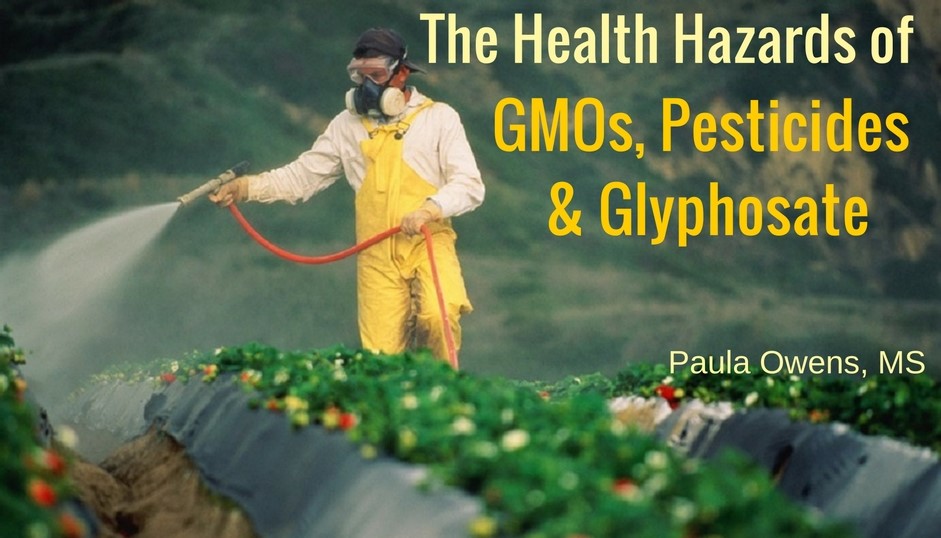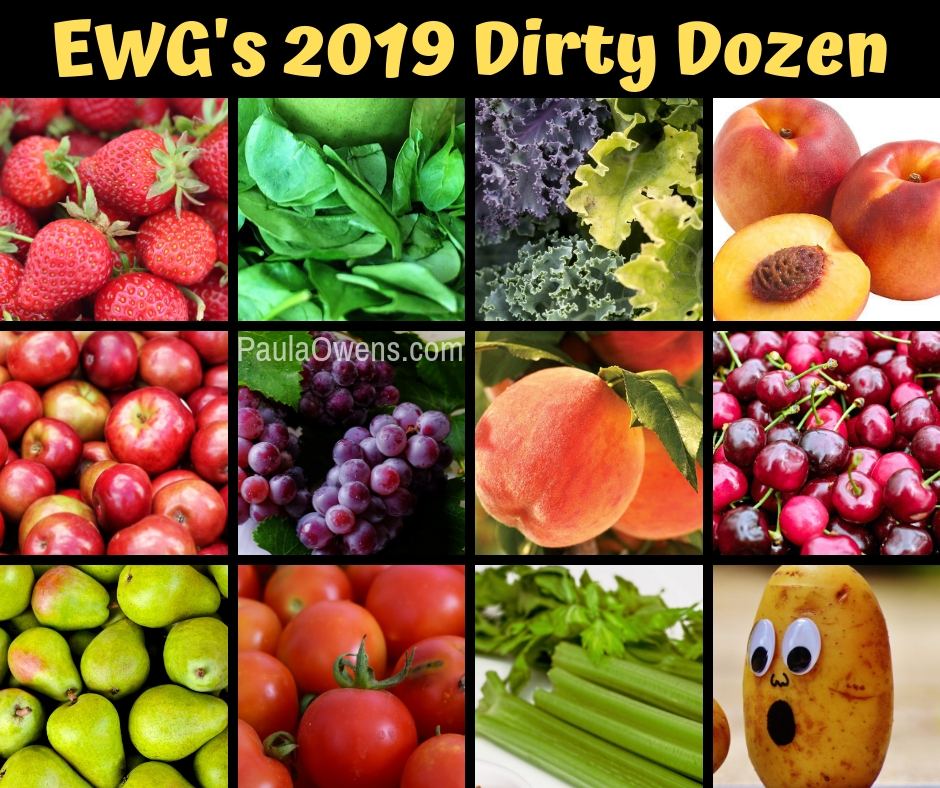Educating and Empowering You to Heal, Thrive, and Live a Happy, Healthy Lifestyle
Reduce Exposure to Pesticides: Avoid the Dirty Dozen
 Pesticides—Herbicides—GMOs—Glyphosate: What we need to know!
Pesticides—Herbicides—GMOs—Glyphosate: What we need to know!
Are you aware that pesticides and herbicides have detrimental consequences and negative side effects on our brain, weight, neurological function, hormones, quality of life and overall health?
According to The Stockholm Convention on Persistent Organic Pollutants, 10 of the 12 most dangerous chemicals are pesticides. The average American is exposed to 10 to 13 different pesticides every single day through food, beverages and drinking water, and 9 of the 10 most common pesticides are disruptive to hormones.
The United States and international government agencies have acknowledged that various pesticides have been linked to a variety of health problems including hormone dysfunction, skin, eye and lung irritation, neurotoxicity, developmental delays, birth defects, weight loss resistance, obesity, cognitive dysfunction, autism and even cancer.
The negative effects of pesticides can take years to show up, and by the time symptoms are clear much of the damage may have already been done.
In 1990, 35 million liters of pesticides were sprayed on fields and crops; in 2013 over 300 million liters of pesticides were sprayed! Pesticide exposure occurs from inhalation, absorption through the skin, and oral exposure in the mouth or digestive tract. Typical sources of pesticide exposure include food, beverages and water, home and personal use items, environmental and occupational exposure.
Did you know that polar bears are experiencing osteoporosis and hypothyroidism from the harmful chemicals they ingest? If polar bears are experiencing adverse health conditions from pesticides and herbicides, you can only imagine the damage pesticides inflicted upon other mammals, wildlife and humans.
A Harvard study found that even tiny, allowable amounts of common pesticides can have dramatic effects on brain chemistry. Kids with above-average pesticide exposures are ninety-three percent more likely to have ADHD. [Source: Pediatrics] Gestational exposure to several common pesticides can induce developmental neurotoxicity in humans, and has been associated with developmental delay and autism. [Source: Environ Health Perspectives]
At lower concentrations of Roundup and glyphosate (1ppm), the main endocrine disruption is a testosterone decrease by 35%!
Pesticides are just one of the many sources of xenoestrogens (a type of obesogen), which are environmental, man-made chemicals that have a chemical structure similar to estrogen that accumulate in fatty human tissue. These chemicals cause tissue damage that disrupt insulin sensitivity, cause blood sugar imbalances, accelerate aging, trigger hormone imbalances, leaky gut, infertility, brain dysfunction and alter satiety so you never feel full or satisfied when eating, thereby promoting fat accumulation and obesity. GMOs, Glyphosate and Pesticide Health Hazards
How does this translate into what we buy at the grocery store? Do you know which fruits and veggies are most important to buy as organic to minimize pesticide, herbicide and insecticide intake and overload? The Environmental Working Group (EWG) created a Shopper’s Guide on the fruits and veggies that contain the highest pesticide residues and which fruits and vegetables are best to buy organic. A study in the journal Environmental Health Perspectives reported that eating an organic diet for just 5 consecutive days can reduce circulating pesticides to non-detectable or near non-detectable levels.
Pesticides: the Dirty Dozen
Fruits and Veggies with the Highest Amount of Pesticides
Apples, celery, strawberries and berries, grapes, peaches, nectarines, leafy greens such as spinach, kale and collard greens, tomatoes, sweet bell peppers and hot peppers, potatoes, cucumbers and snap peas, which may contain organophosphate insecticides that the EWG characterizes as highly toxic and of special concern.

Buy Organic! You can lower your pesticide exposure nearly 80% by eating organic foods.
Many pesticides are systemic, meaning that the pesticides are taken up by the plant’s roots and distributed throughout the plant so unfortunately while washing fruits and veggies is important, no amount of washing completely removes them. Included in this class of pesticides are genetically engineered crops, which express an endotoxin that is impossible to wash off.
Eating an organic diet for just one week can reduce pesticide levels in adults nearly 90%.
Did you know that organic fruits and vegetables have up to 40 percent more antioxidants and approximately 180 times lower pesticide content than non-organically grown produce?
A salad today (mixed greens, peppers, onions, tomato, olive oil) has from 15 to 76 percent less nutrient value plus residues of pesticides and nitrates compared to this same salad mix in 1940.
Other common items of concern include Atlantic, farmed salmon and catfish. Farmed salmon has up to 90% more pesticides than wild-caught salmon. Other common dietary sources of concern include dairy products, grains, factory-farm-raised animal protein and synthetic vitamins, including some brands of fish oil and protein powder.

